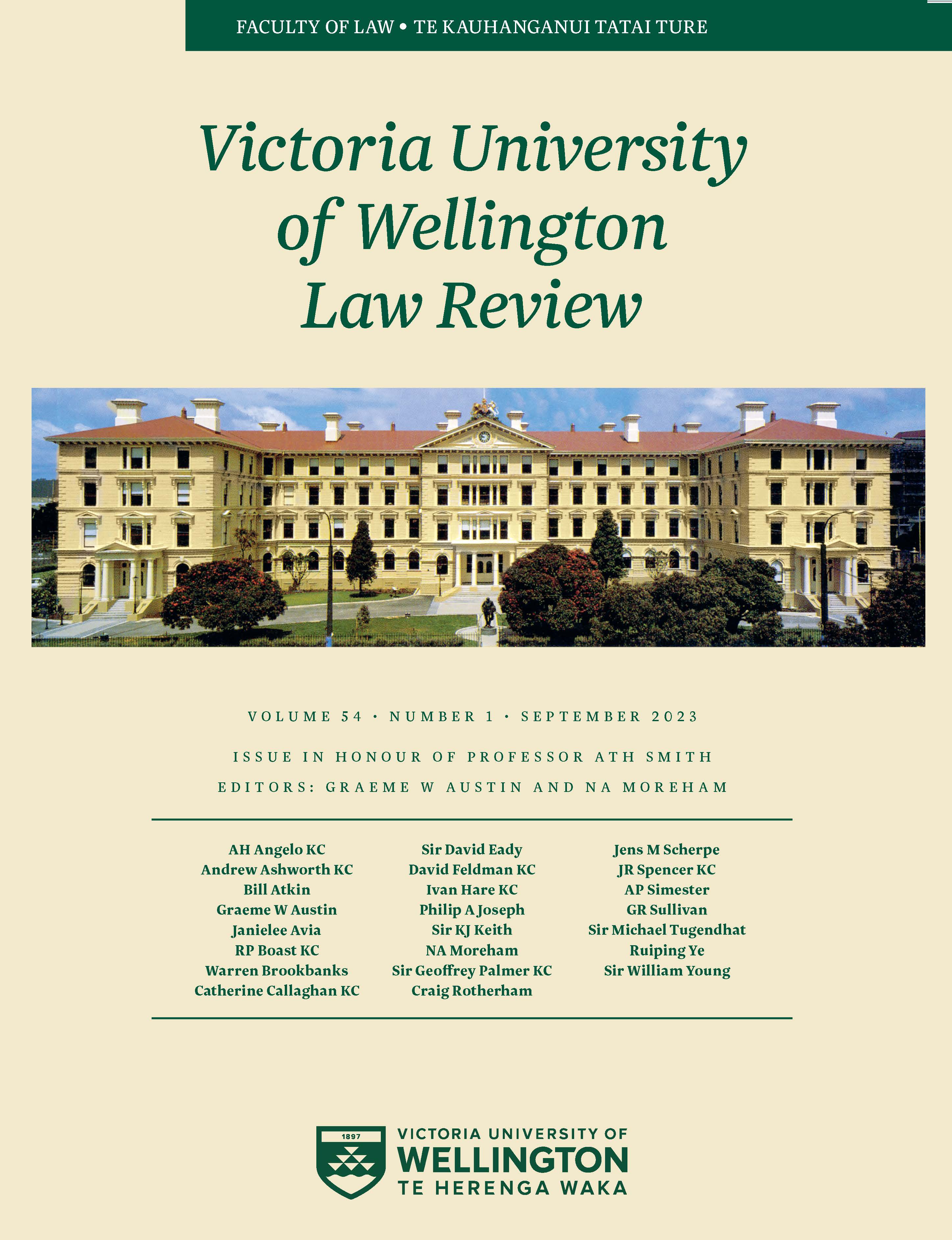Corsica, New Zealand and Human Rights
DOI:
https://doi.org/10.26686/vuwlr.v54i1.8451Abstract
The American and French revolutionaries of 1776 and 1789–1793 invoked the sovereignty of the people to dethrone their kings and make declarations of human rights. In 1755 and 1794, the people of Corsica invoked the same principle to declare their independence first from Genoa and then from France. By agreement with Britain, in 1794 they adopted a constitution guaranteeing human rights, and elected George III to be their king. In the 1830s, under threat from foreign forces, representatives of the people of New Zealand invoked the same principle. They declared their independence and by agreement with Britain they enthroned Queen Victoria on condition of obtaining guarantees of all the rights and privileges of British subjects. By these agreements that are less well known than the revolutions of 1776 and 1789 Britain accepted the sovereignty of both British and foreign peoples as exercised through their representatives, of an elected monarchy and of the duty of governments to guarantee human rights in England and in the Empire.
Downloads
Downloads
Published
How to Cite
Issue
Section
License
Authors retain copyright in their work published in the Victoria University of Wellington Law Review.


